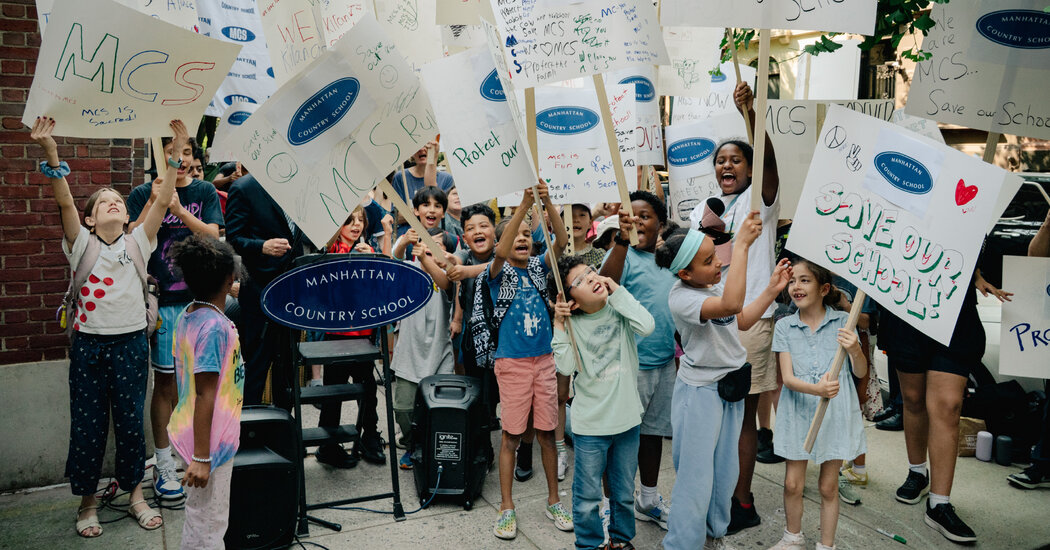Inspired by the civil rights movement, Gus Trowbridge, who had grown up on Philadelphia’s Main Line, and his wife, Marty, conceived the school in the image of the institutions they had attended and admired. The Trowbridges had both come of age at Putney, a back-to-the-land boarding school in Vermont, before going to Brown University. Moving to New York after college, Mr. Trowbridge taught for several years at Dalton and set out to build a school that could offer the same sort of rigorous, progressive education to students across the class spectrum.
By the mid-2010s, Manhattan Country was getting applications from many more families than it could accommodate. A new building, the thinking went, would allow the school to double its enrollment to about 400 students and add substantially to its tuition revenue, as well as offer amenities — a gym, for instance — that the old building did not have. The school was renting gym space elsewhere, and its playground was essentially Central Park.
But the decision to buy the new building was controversial. In 2014, Mary Trowbridge, a daughter of Gus and Marty who was the head of the lower school, suggested to the The Wall Street Journal that the purchase had amounted to mission drift. The community, she and others felt, had not been given a sufficient voice in determining what should happen.
The expansion might have proceeded successfully enough if not for the pandemic. By 2019 there were 305 children enrolled, a former board member said. But Covid saw some full-paying families move away or opt for other schools when M.C.S. remained remote in September 2021 at the request of many teachers. By 2022, 40 percent of families fell into the bottom two tuition brackets. The highest rate of tuition, in the upper school, is $59,000 a year, but between 2015 and 2024, even as enrollment grew, the average annual tuition coming in remained only around $21,000 to $23,000.
On Tuesday afternoon, parents, children and teachers rallied outside M.C.S., calling for the school to be saved. Brad Hoylman-Sigal, who represents the West Side in the State Senate, and Micah Lasher, his compatriot in the Assembly, each spoke out in support of the community and the need for the school to survive.
